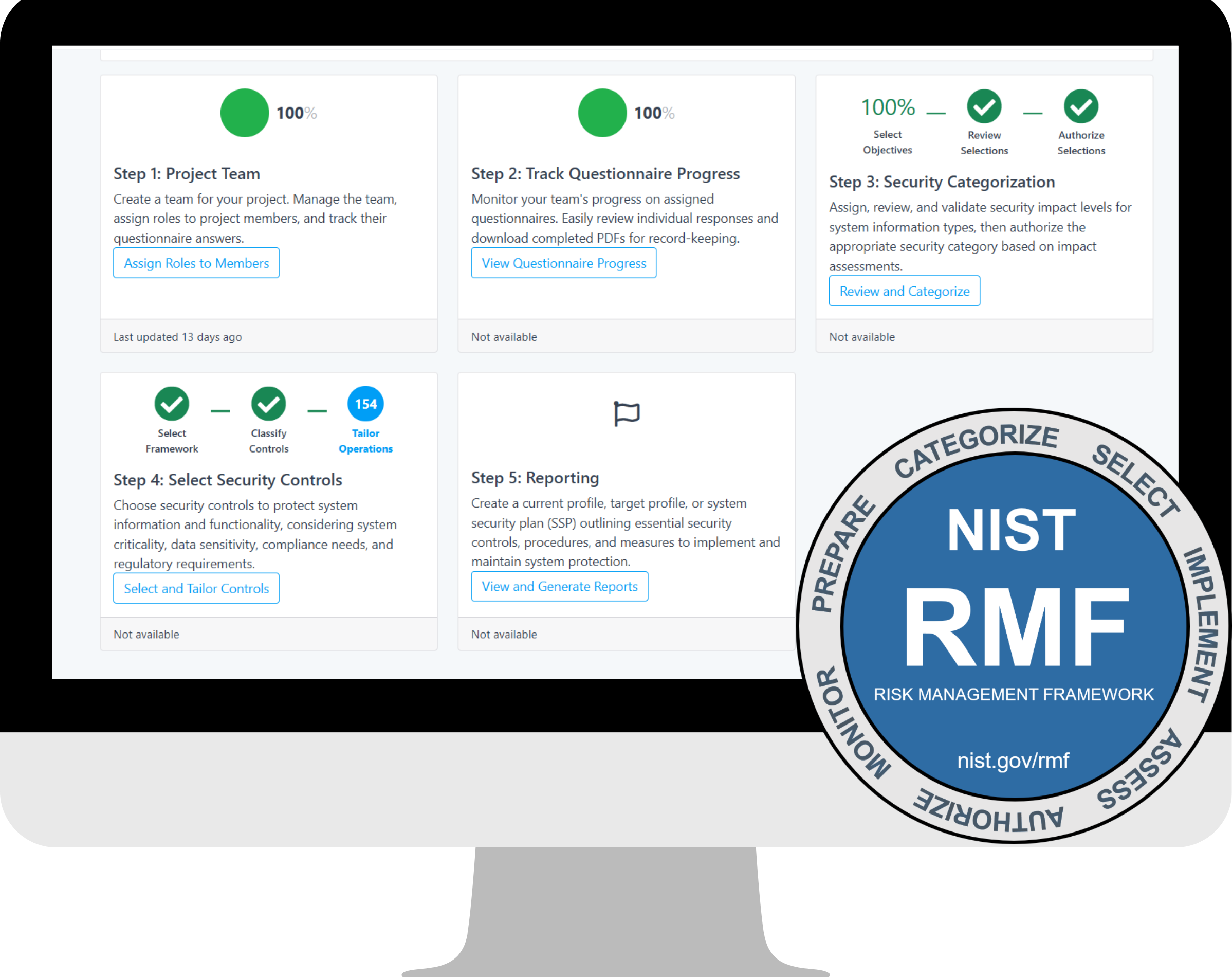
How RMF Tool Streamlines Compliance and Risk Management for NIST, FedRAMP, and Security Frameworks

How RMF Tool Streamlines Compliance and Risk Management for NIST, FedRAMP, and Security Frameworks
RMF Tool simplifies compliance by guiding you through each step of the NIST Risk Management Framework with automation and built-in collaboration. Here’s how it works:
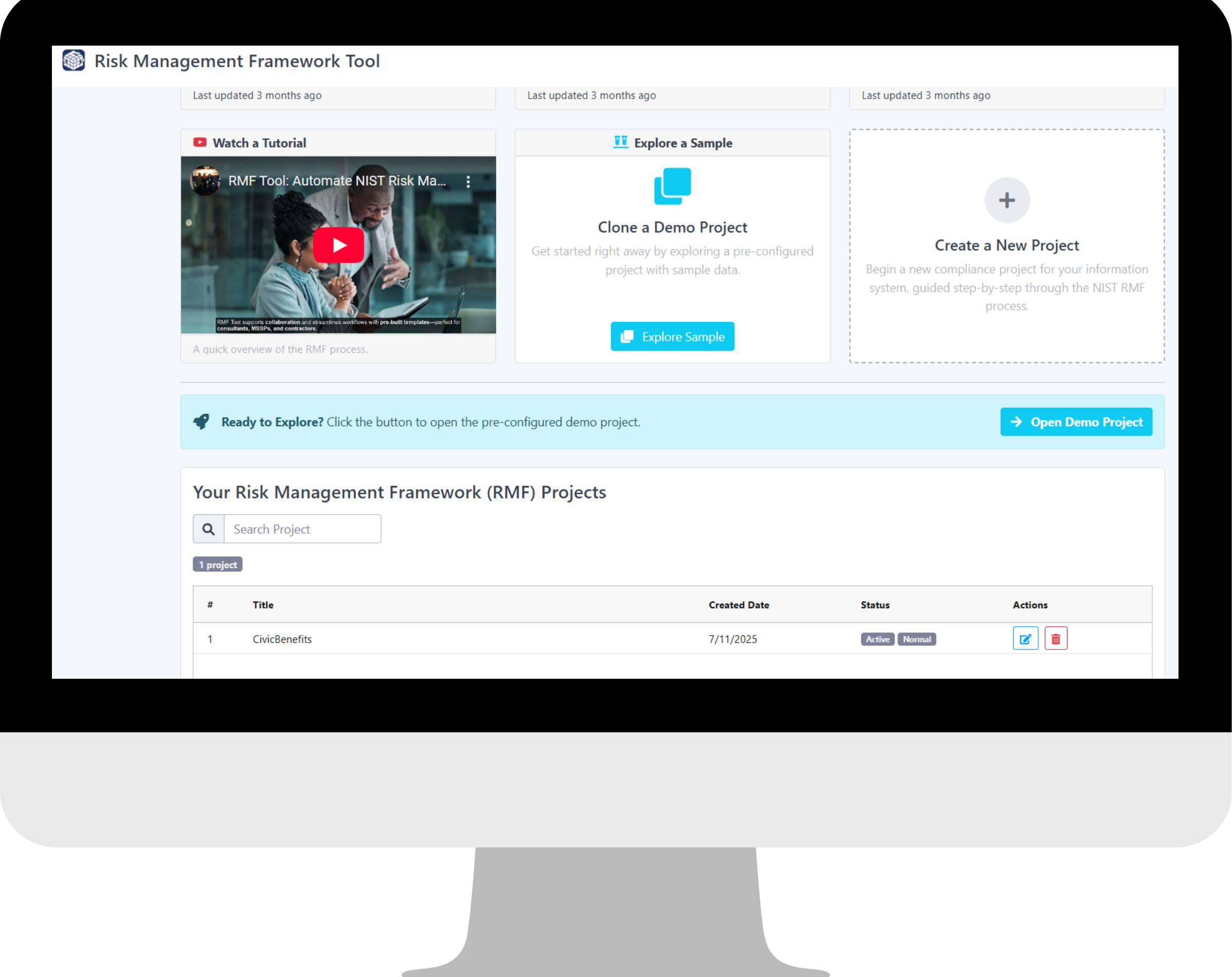

Create New Risk Management Framework Project for your Information Systems
Begin by creating an admin account, allowing you to manage the risk management framework for your information systems as separate projects under a single organization.
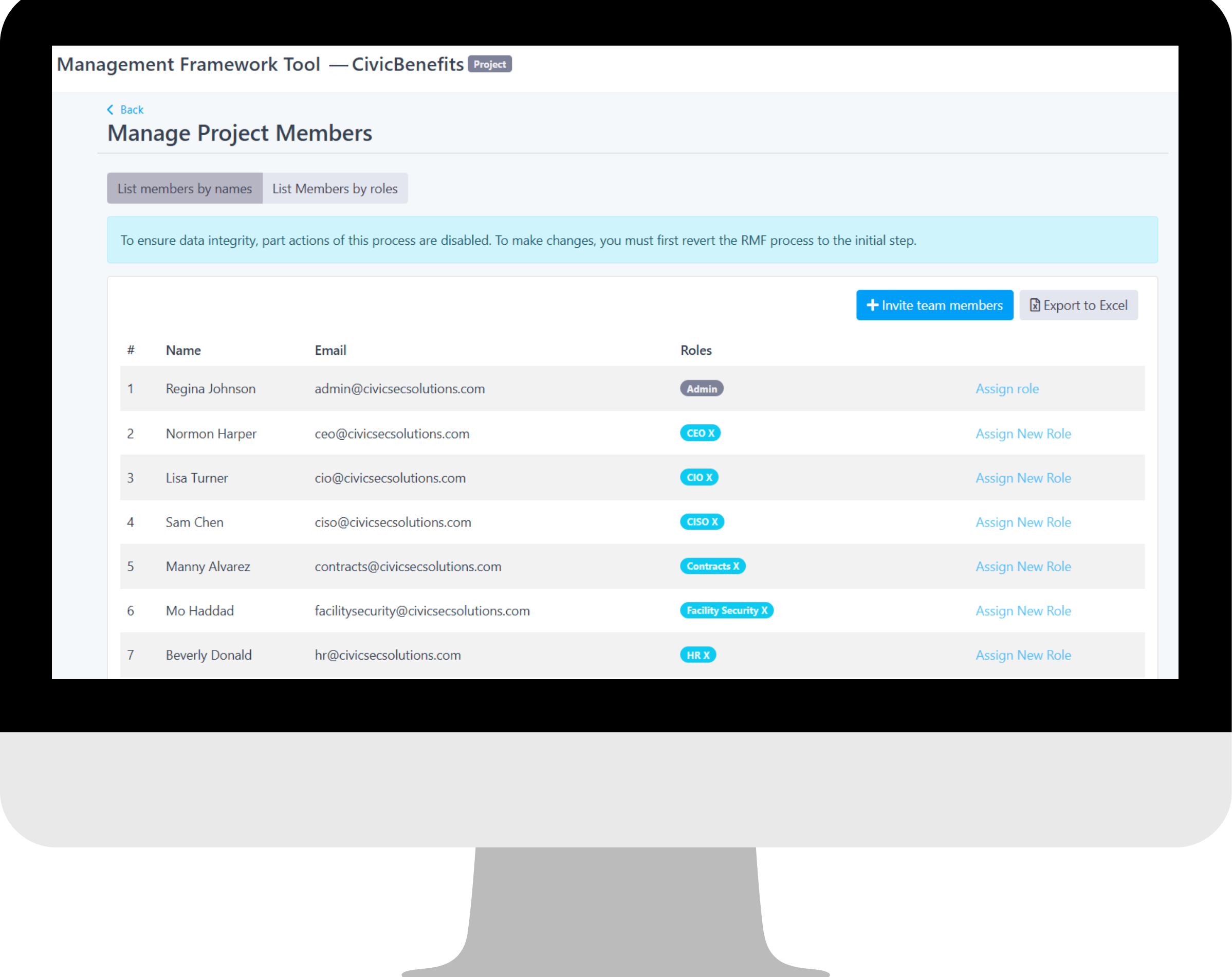

Assign Role-based Interactive Questionnaire for Collaboration
Define and assign roles to key personnel responsible for providing critical security-related information based on their expertise and system responsibilities. Alternatively, you can also take full ownership and independently complete the entire project.
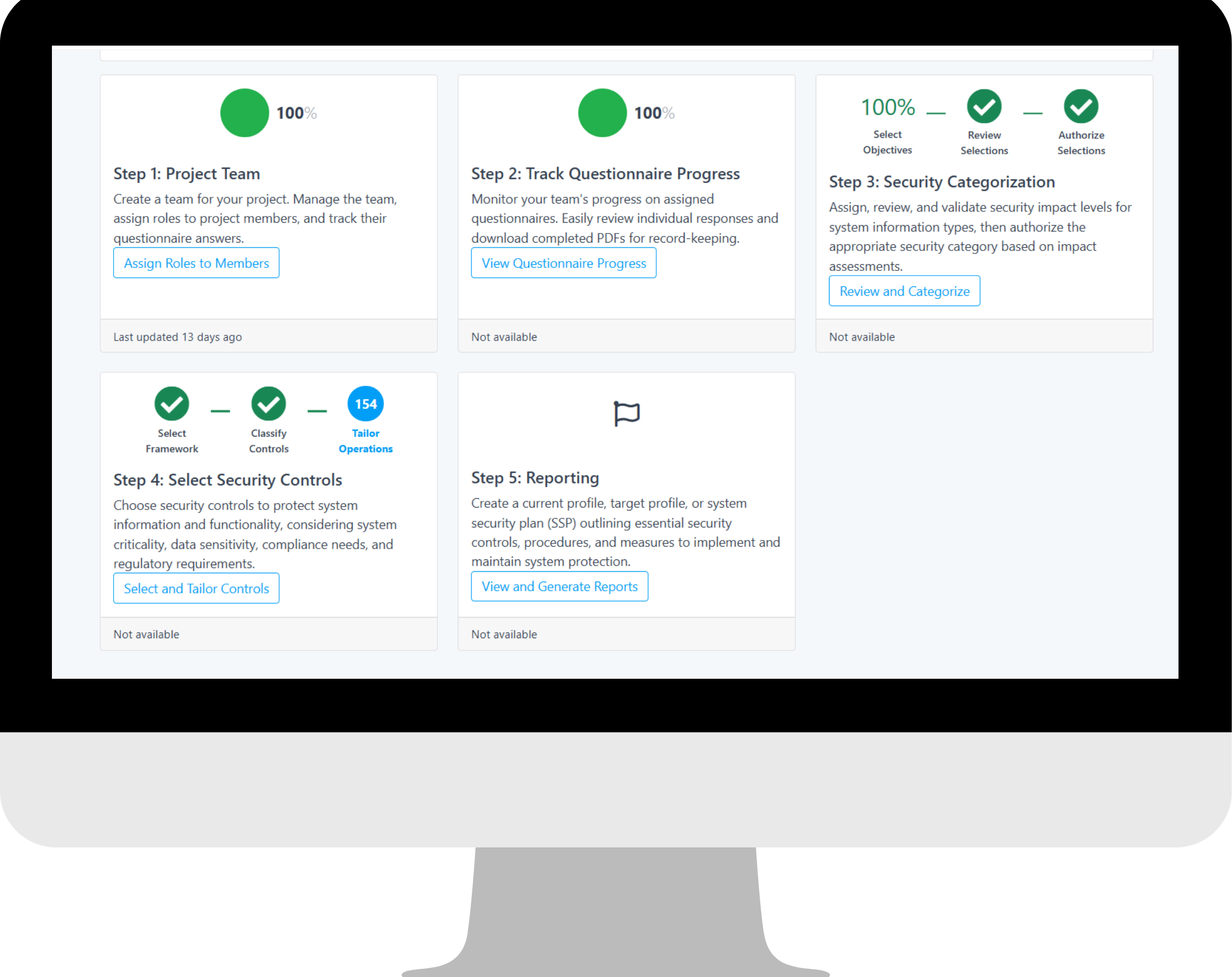

Monitor Project Progress and Consolidate Responses
Based on assigned roles, personnel complete the NIST Interactive Questionnaire on the RMF Tool platform, with responses collected and consolidated to establish a foundation for security categorization.
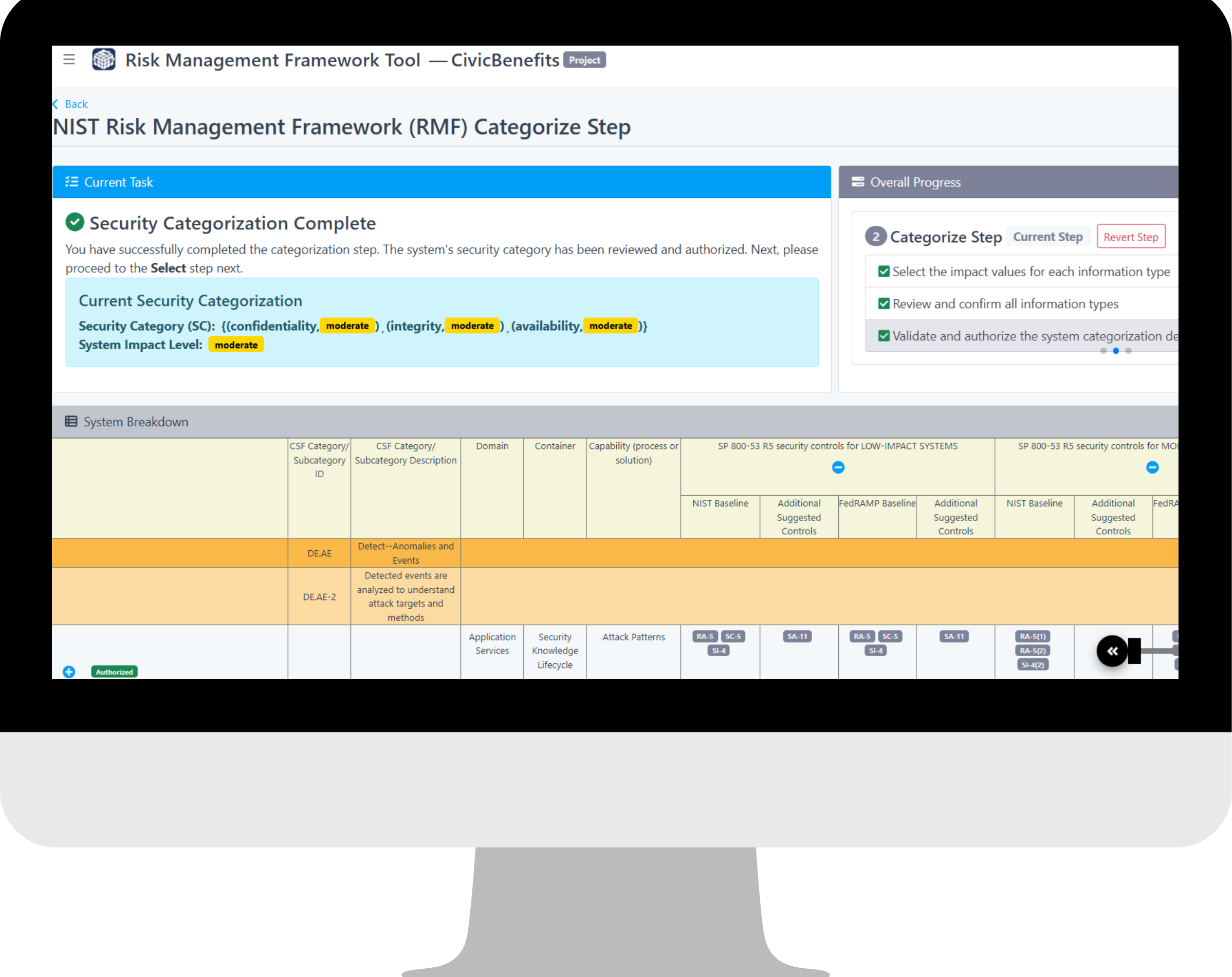

Assess Adverse Impact for System Categorization
Based on questionnaire responses, specific system information types are derived using CSA Enterprise Architecture principles. You further quantitatively evaluate the adverse impacts of potential losses in the system's Confidentiality, Integrity, and Availability (CIA), as well as the information it processes, stores, and transmits.


Select and Tailor Controls for Protection
RMF Tool supports full control tailoring by enabling users to apply scoping considerations—such as security objectives, technology constraints, legal and policy factors, and mission relevance—to justify the exclusion or modification of controls. Users can also define control parameters and add compensating controls when standard implementations are not feasible. These tailoring decisions form the basis of both the Target Profile and the Preliminary Current Profile, and are automatically reflected in the final System Security Plan (SSP), exportable in PDF and OSCAL formats.
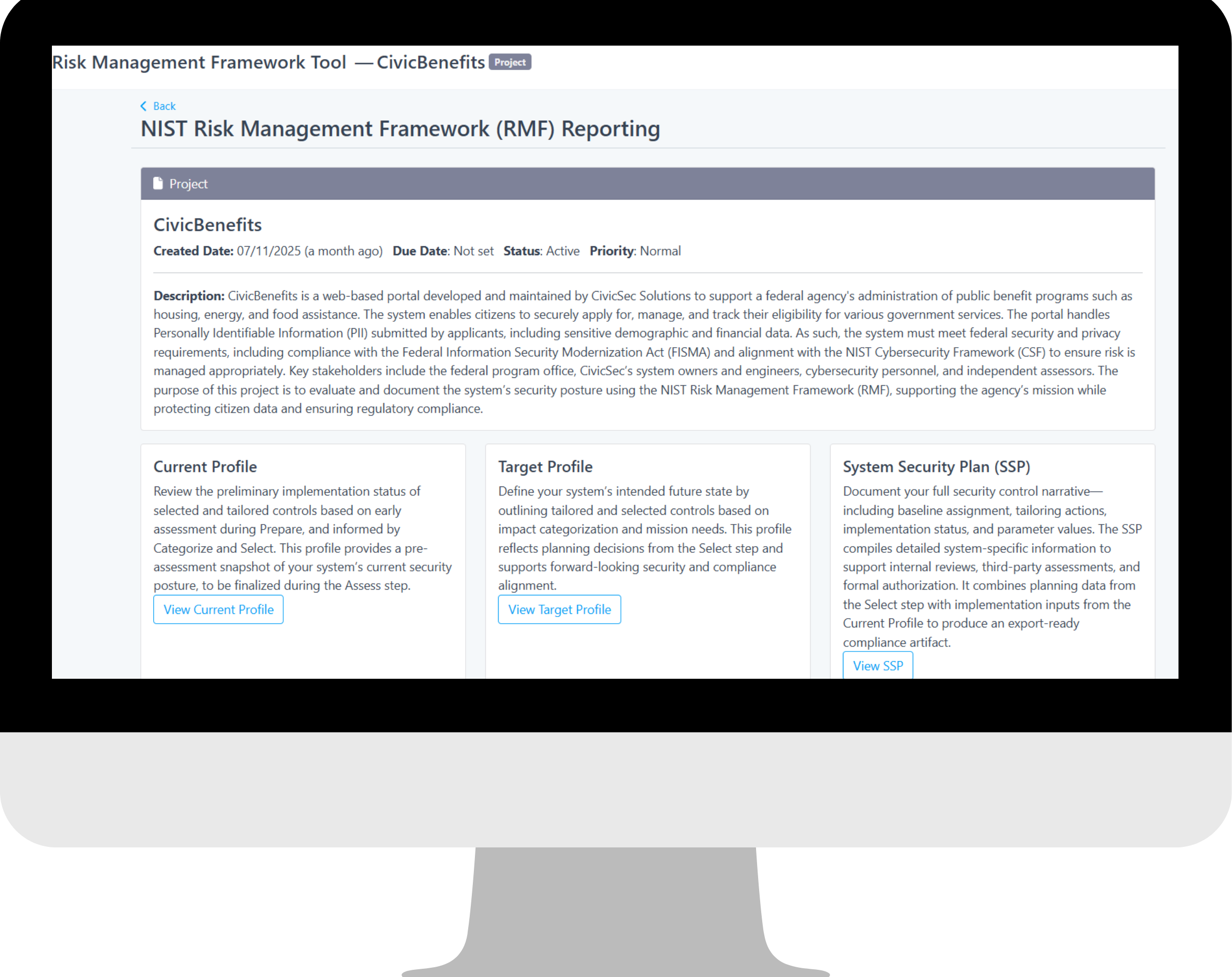

Export and Share Reports in Multiple Formats
Export your security documentation in Word, Excel, or OSCAL formats to support a variety of users and workflows. For teams not yet ready for machine-readable formats, Word documents offer a familiar, editable format ideal for consultants, internal reviewers, and executives. Excel exports support structured reporting and control traceability, while OSCAL is available for organizations pursuing automation and system-to-system integration. Whether you're sharing drafts, preparing for audits, or coordinating across teams, RMF Tool provides the right format for every stage.
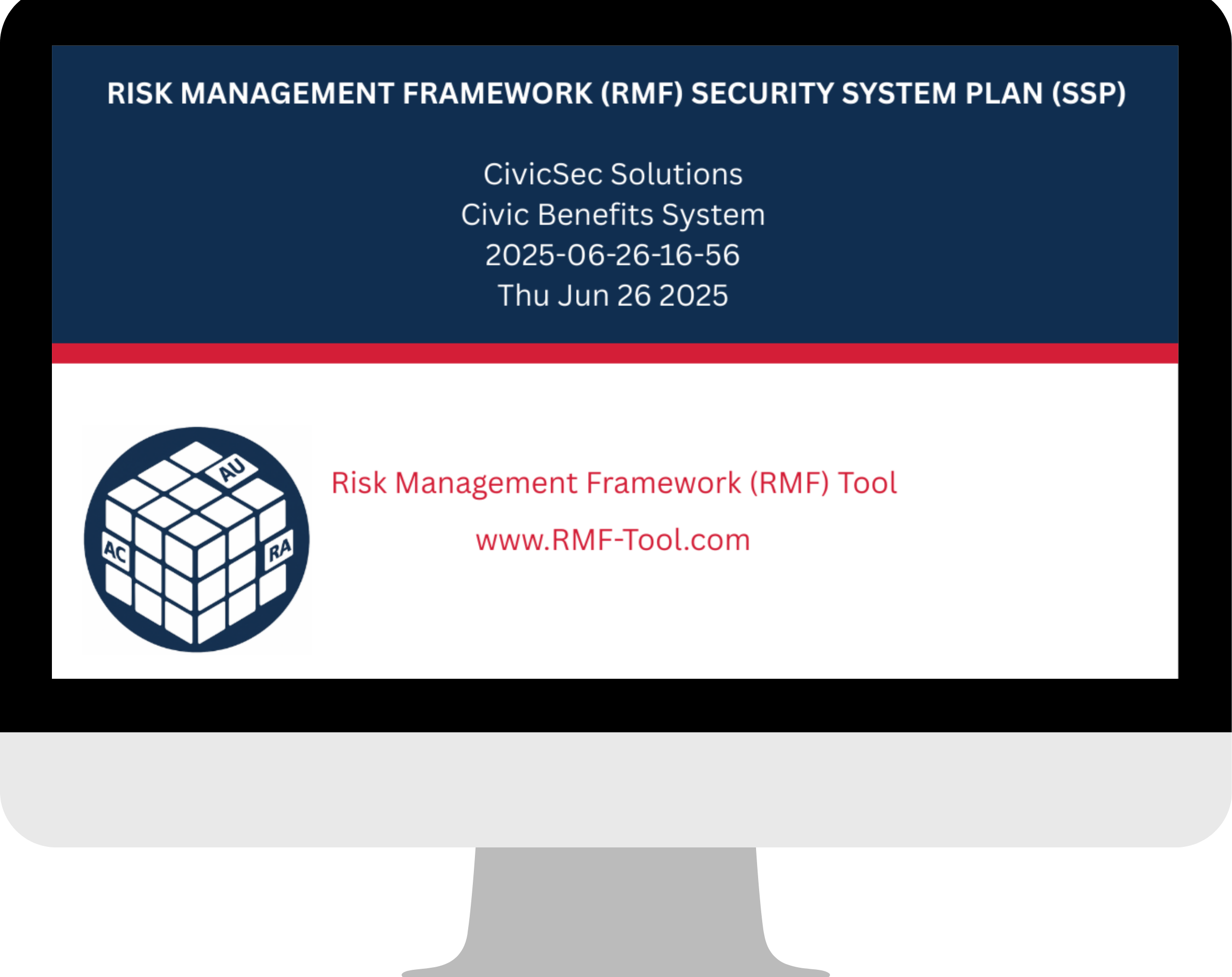

Export and Share Reports in Multiple Formats
Easily export security documentation and reports in Excel, PDF, or OSCAL formats. This flexibility allows for seamless sharing, regulatory submissions, and integration with other compliance tools, ensuring efficient reporting and streamlined compliance management.